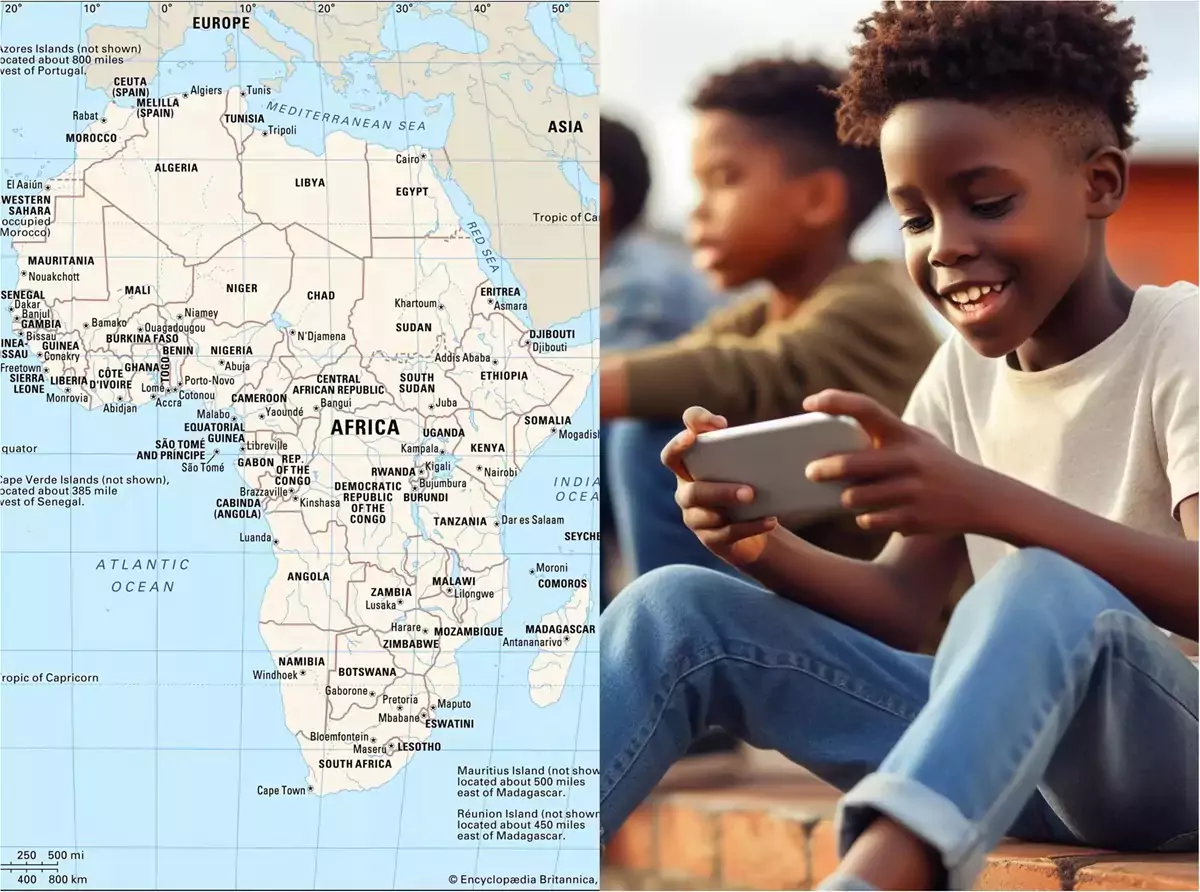With the global gaming industry projected to exceed $376.08 billion by 2028, the hunt for unexplored markets is intensifying.
Africa, with its youthful population and surging interest in mobile gaming, has emerged as a particularly promising frontier in the gaming market.
For gaming developers and publishers eyeing sustainable growth, seizing the untapped potential of this diverse and vibrant continent is increasingly becoming a strategic imperative.
Africa’s Burgeoning Mobile Gaming Market
Africa is called a Youth continent as 40% of Africa’s population is aged 15 or below, presenting an exciting opportunity for mobile game developers.
The region has slowly started developing and showing strong potential as a new market for an upcoming venture.
As underdeveloped regions, it is possible to lack high gaming technology like PCs, Consoles, and VR/AR among the masses but this is also an opportunity for smartphone developers as around 80% to 90% of web traffic comes from mobile devices.
If we look at the highly populated African country Nigeria, over 80% of web traffic in it generated through smartphones.
As per the predictions, smartphones will account for 61% of total connections in Africa by 2025, which means the number of PC and console gaming will increase substantially.
Moreover, the average playtime for casual games in Africa exceeds that of the United States by a substantial margin, showcasing the continent’s burgeoning interest in mobile gaming.
Leveraging Local Insights and Diverse Audience Needs
Africa’s gaming landscape can’t be just evaluated by which gaming device types (mobile/PCs)they use. We have to think beyond its mobile-centric nature.
The continent is home to over 3000 native languages (the highest in the world) and multiple ethnic communities with their own culture and customs.
So because of cultural nuances, the continent demands a tailored approach to content creation.
Research has indicated that 58% of mobile players prefer games tailored to their specific region.
Furthermore, the need for inclusive representation within the gaming world cannot be overlooked.
Statistics have highlighted a significant disparity in ethnic representation in games, emphasizing the importance of diversification and representation within the gaming narrative.
Navigating Challenges for Sustainable Growth
While the growth potential is undeniable, navigating Africa’s unique challenges is key to success.
Diversity is important but sometimes it causes stress for a business to thrive as it can’t serve all at once.
This fragmented nature of the continent can be removed by the unified universe of gaming.
Another major challenge for gaming industries is to need for strong gaming infrastructures.
From internet connectivity to payment solutions, there is a lot of work that still needs to be done for sustainable growth, which is a thorough understanding of local dynamics.
Addressing issues such as latency, device storage, and localization can be instrumental in building a sustainable presence within this burgeoning market.
The Path Forward: Embracing Diversity and Localized Innovation
For gaming studios eyeing the African market need a deep understanding of its diverse cultures and gamers’ needs.
Investors need to come forward first to create a robust infrastructure like improvement in localized payment solutions, affordable mobile and gaming devices, setting up gaming hubs, and broadband and internet connectivity to remote areas.
As per adaptability concerns, content creators/developers need to cater to the cultural richness of the continent.
Africa is a land of mysteries, adventure, actions, and thrill, and has a lot of stories and myths that people all around the world want to listen to.
If developer utilizes these stories by creating a new game or adding to their existing universe will undoubtedly pave the way for long-term success.
Conclusion
Africa’s gaming market is a treasure trove waiting to be unlocked.
By investing in understanding the local dynamics, embracing diversity, and adapting content to meet the needs of the diverse population, gaming studios can position themselves for growth and success.
Seizing this opportunity in the emerging African gaming demands a strategic and nuanced approach, which, when done right, can result in a competitive advantage that resonates for years to come.
Stay tuned with Gaming-foodle for more such research!
Discover more from Gaming Foodle
Subscribe to get the latest posts sent to your email.





